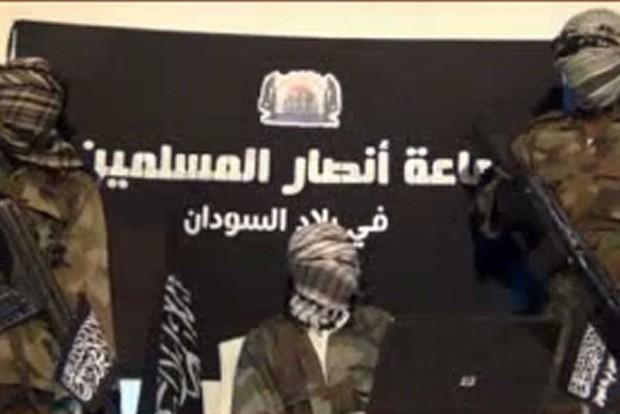Libya and Cote d’Ivoire’s Yo-Yo foreign policy: The return of the French policeman
By Prof Richard Banegas
During the Franco-African summit in Nice in 2010, president Sarkozy affirmed that there would be no more French military interventions in Africa. Several months later, however, harshly criticised for his ministers’ sympathy with the regimes in Tunisia and Egypt, he engaged in two new conflicts in Libya and the Cote D’Ivoire. Could the French bombardments of Gaddafi‘s 32nd brigade in Benghazi and of Laurent Gbagbo‘s residence in Abidjan be the sign of a return for France to its old postcolonial rí´le as the ‘Policeman of Africa? ‘ Is it the indicator of a new doctrine of pro-democracy and regime-change orientated intervention? Or perhaps the expression of a schizophrenic form of politics, incoherent and fickle, defining itself in reaction to each new event, without a clear line or strategy?
The French position regarding democracy and armed intervention has fluctuated a great deal according to the period and country. Mitterand’s La Baule speech in June 1990 generated great hope in Africa by encouraging the idea that France would engage firmly on the side of democracy. But these hopes were very quickly dashed by Paris’ support of the most corrupt regimes. The doctrines which followed did not manage to correct this bias. Alternating between economic and multilateral sanctions (the Abidjan doctrine of 1993), and a de-politcised approach in favour of “˜good governance’, the French position towards political reform has remained uncertain and ambiguous.
With military matters it is the same. In the second half the 1990s France embarked upon a reform of her security policy in Africa, claiming to mark the start of a “˜new African politics’. As with other large powers seeking to disengage themselves from the continent, Paris set in motion a new policy of crisis management. Breaking from the interventionist practices of the past, the Jospinian “˜neither-nor’ (neither intervention, nor indifference), would serve to create a new relationship between France and its African partners. This new approach was very soon tested in three highly symbolic countries for Franco-African relations: In Congo Brazzaville and Central Africa in 1997, and then in Cote D’Ivoire in 1999. During general Guei’s coup d’etat, Jospin’s socialist government refused (after a battle with Jacques Chirac’s team at the Palais de L’Elysee) to intervene in Abidjan to save the Bedie regime.
This new approach was further entrenched by the structural reforms to the policy of military cooperation, which sought to bring security operations in line with a path of multilateralisation, regionalisation and “˜africanisation’. Operation RECAMP was thus presented as the new key to regional security, allowing France to shelter behind the technical cover of support for local armies. Military bases as well as defence agreements were reconsidered, taking into account the notable effect of internal constraints linked to the professionalism of the French army.
However, at the beginning of the 2000s, and particularly after the return to power of the political right in 2002, there was a contrary movement towards military re-engagement in African conflicts. After an outbreak of rebellion by the Forces Nouvelles in Cote d’Ivoire, Paris sent more than 5000 men to intervene in the conflict. Refusing to fly to the aid of Gbagbo, the French force instead supported the UN on the front line. The direct involvement of French troops in the Ivorian crisis, and also in Tchad and the Central African Republic, seemed therefore to confirm de facto another change of doctrine, much more interventionist in character, but without this ever being made explicit.
We now come to the third bounce of this yo-yo politics: after the crisis of November 2004 in the Cote d’Ivoire, which saw French troops confront the loyalist army in the streets of Abidjan , and with young patriots aiming at the French citizens in return, Paris stuck to a prudent position of diplomatic and military retreat. The French forces in Cote d’Ivoire were reduced to a minimum, and the Adibjan military base was closed. The official message was that non-intervention was the default position. In 2011, during the first four months of the post-election crisis, Paris tried to follow this prudent policy of non-engagement for fear of another November 2004 . But the events in the Arab world and the impasse in the Ivorian post-election crisis were to set in motion a spectacular return to the “˜politics of the canon’.
In view of the escalation in the Ivorian crisis and Nato’s engagement in Libya, the French government was caught in a delicate situation – criticised in France and in Cote d’Ivoire for having double-standards. Why was France at the front of the queue to attack Gaddafi’s army, while in Abidjan it was patience that prevailed after the second round of the presidential elections? Could one undertake armed intervention on the one hand, and yet also consistently play the card of deferring to the African Union to promote “˜African solutions to African problems’ when it suits? Should the support for African democratic processes, be they rebellious or revolutionary, be different either side of the Sahara?
To general surprise, at the start of April the Elysee finally answered these questions by sending in the French army in tandem with the pro-Outtara forces ito finish off Laurent Gbagbo’s regime. This operation certainly paved the way for the solution to a situation which was plunging the country into chaos. But it also constituted a political weakening for president Outtara, already considered to be the “˜foreign’ candidate.
It also raised some questions which go beyond the specific case of the Ivory Coast. If there is an obligation to protect civilians under the United Nations’ resolutions, why did they not intervene earlier to stop the brutal repression of the pro-Outtarra demonstrators, the bombardment of the market in Adobo or to avoid the massacres in Duekoue? Can the shelling of Gbagbo’s headquarters, the presidential palace and the official residence, be strongly justified as protecting civilians? France will not be able to obfuscate for long the contradictions between a mission officially sanctioned by the UN and the reality of an intervention which was undertaken in support of Ouattarist forces unable to do the job themselves. In the longer term, the question arises as to whether the interventions in the Ivory Coast and Libya were brought about with the intention of setting a new political or legal precedent. If in Abidjan as in Benghazi, the intervention was made on the basis not only of a “˜responsability to protect’ but also to impose regime-change and democracy, how shall we therefore respond to future demands emanating from insurgents excluded from the electoral processes in Senegal, Burkina Faso or elsewhere?
The French doctrine regarding armed intervention and the support of democractic processes urgently needs to be clarified, lest it remain the yoyo politics of authoritarian arrogance, subject more to the exigencies of domestic interests than the real international issues. This is a necessary precondition to escaping the spiral of interventions and calls of empire which nourish the old image of the policeman of Africa. In this most fundamental debate over the future of Franco-African relations, several key issues have to be addressed:
1. The africanisation of the means of collective security: France, like most of her allies, has chosen to favour “˜African solutions to African problems’. This has become the only politically correct approach, an axiom used for guiding all actions undertaken in the continent. But alongside the convenience and utility of such a discourse the question arises: Can African solutions not be global solutions? The paternalism of the international community invokes the same cliches on the question of conflict-resolution as it does for the democratic struggle. Are there African solutions for sub-saharan societies and other options (eg. western solutions) for our mediterranean coast? France, which has always played the role of Africa’s advocate in an international context, cannot evade these questions, which fix upon western capacity capicity (or willingness) to turn local and regional problems into international political issues, requiring international solutions. The case of Darfur was for many years sympotomatic of the dilemma afflicting western powers. The Ivory coast today constitutes an equally dramatic example which obliges us to reflect upon how westerners (and teh French particularly) manage African crises in their global and local dimensions.
2. Issues of regionalisation and multilateralisation: France (like the United States and Great Britain), has for many years attempted to support regional solutions to African crises and has affirmed her desire to act multilaterally and with the support of regional organisations like the African Union. This is the contemporary doctrine, yet the actual manner of French intervention has affirmed a flagrant disregard for this priniciple in undermining the care taken to act in accordance with multilateral agreement (whether from the African Union or the United Nations), and the regular attemps to free themselves from such agreements, for example by refusing to place troops in operation Unicorn under UN command or to bombard Libya without allowing NATO to take political charge. The same tendencies were evident in operations Artemis, Ituri and Eufor in Tchad and Central African Republic. One must therefore question the increasing discrepancy between the tendancy to “˜Europeanise’ crisis management, while the practical reality of intervention remains at best bi-lateral: action taken with the blessing of the Brussels elite, which pretends to represent the multilateral authority.
3. The militarisation of our African relations: Today more than ever before the intentions of the West in Africa are written only in the prose of military and martial action. French politics is often perceived in African public opinion through two prisms of negativity: that of a “˜colonial hangover’ and another of european repression of migratory flows. To have “˜saved Benghazi’ might perhaps have given new shine to the French emblem, but only through buffing it with the polish of war. This serves to underline indelibly the increasing martialisation of global North-South relations in a post 11th September context. With the backdrop of international struggle against terrorism, the threat of Al-Qaeda in the Islamic Maghreb and repeated rebellions, there is a great tendency to see the African continent solely through the lenses of insecurity and destabilisation (particularly migratory).
At some point in African relations when the themes of the colonial legacy return in force, those of anti-imperialism, of lost sovereignty (notaby via two decades of conditional political and economic relationships), the possible deleterious effects of this strong-arm, militaristic approach which serves to feed tension and growing resistance to Western imperialism, become significant. Even the African Union does not hesitate to ride this wave of rhetoric. To prevent the gulf from widening, as African public opinion hardens ever more against external military interventions, it is necessary for France to divest itself of its obsession with security and to demilitarise its relations with the continent by redefining teh very roots of its Africa policy.
Richard Banegas teaches political science at the Sorbonne. He is editor of the quarterly journal Politique africaine
Translation by John Syfret





